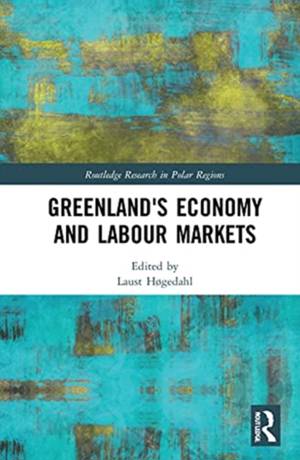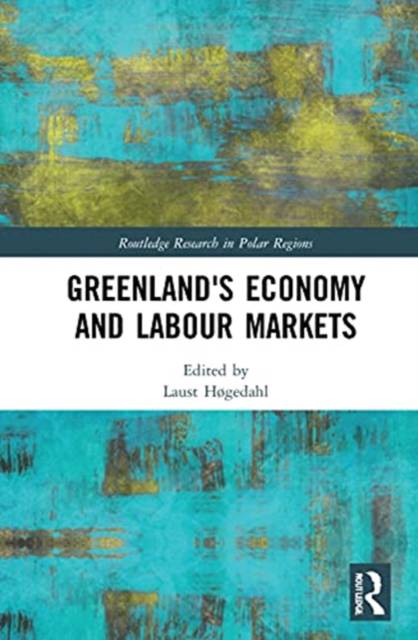
- Afhalen na 1 uur in een winkel met voorraad
- Gratis thuislevering in België vanaf € 30
- Ruim aanbod met 7 miljoen producten
- Afhalen na 1 uur in een winkel met voorraad
- Gratis thuislevering in België vanaf € 30
- Ruim aanbod met 7 miljoen producten
Greenland's Economy and Labour Markets
Omschrijving
This book explores structural changes in Greenland's economy and labour markets due to the transformative effects of climatic changes and growing international attention. It offers multidisciplinary perspectives from economists, sociologists, and political scientists to demonstrate how the Greenlandic economy works.
Due to an increasing focus on the Arctic area and Greenland in particular, the book seeks to understand the functioning and dynamics of Greenland's labour economy, as well as the challenges that arise from the melting ice and internationalisation. It fills a substantive gap in the existing literature by compiling research on these critical subjects and exploring current and future opportunities for labourers. Today, Greenland is reliant on large financial subsidies from Denmark to provide for a large share of its national budget. This fuels Greenland's political ambition to gain greater independence from Denmark, which requires more private sector growth to develop a sustainable economy. This book thus contains an exhaustive introduction to important business development themes such as macroeconomics, markets, labour supply, labour market policies, and institutions and considers Greenland's colonial past, great Inuit heritage, and unique geography and nature to re-shape its economy and labour markets. Informed by a lucid writing style, each chapter casts light on different economic and social issues of Greenland.
This is the first international book on Greenland's economy which discusses its geopolitical importance and prospects for the Arctic region. It will be a valuable point of reference for students and academics of economics, Arctic research and political economy.
Specificaties
Betrokkenen
- Uitgeverij:
Inhoud
- Aantal bladzijden:
- 172
- Taal:
- Engels
- Reeks:
Eigenschappen
- Productcode (EAN):
- 9780367516192
- Verschijningsdatum:
- 6/08/2021
- Uitvoering:
- Hardcover
- Formaat:
- Genaaid
- Afmetingen:
- 156 mm x 234 mm
- Gewicht:
- 439 g

Alleen bij Standaard Boekhandel
Beoordelingen
We publiceren alleen reviews die voldoen aan de voorwaarden voor reviews. Bekijk onze voorwaarden voor reviews.










